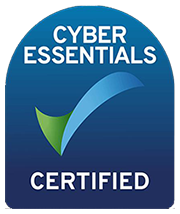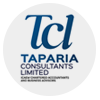Expenses will be incurred in running a property business. To ensure that tax is not paid unnecessarily, it is important that all allowable expenses are deducted in calculating the profits for that business. However, to avoid unwanted attention from HMRC, it is important to understand which expenses can be deducted, and which cannot.
An expense is revenue in nature. Different rules apply to capital expenditure and these vary depending on whether accounts are prepared using the cash basis or the accruals basis.
The ‘wholly and exclusively’ rule
In the main, the tax rules for property income borrow from those applying for trading purposes, and this includes the rules which determine whether an expense is deductible in calculating taxable profits.
The key rule here is the ‘wholly and exclusively’ rule which states that an expense cannot be deducted unless it is incurred wholly and exclusively for the purposes of the business. A deduction is not allowed for personal expenses.
To ensure that only business expenses are deducted, it is important to keep things separate so that it is clear when an expense relates to the property business and when it is a personal expense. Separate bank accounts should be maintained, receipts and invoices retained and accurate records kept.
Dual purpose expenditure
Where an expense is incurred for both a personal and a business reason, unless the business element can be identified and the expenditure split, a deduction is not allowed. An example here is everyday clothing worn only for work. Unless the clothing has the company name or logo displayed as part of a uniform, a deduction is not allowed as the clothing also provides the personal benefits of warmth and decency.
Apportionment
Where it is clear that part of an expense relates to the business and part is personal, the expense can be split and the business element will be allowed as a deduction in calculating profits. The apportionment must be done on a ‘just and reasonable’ basis.
Examples of expenditure which may comprise both a personal and business element include the use of a car or van or a mobile phone. For example, if a landlord uses their car both personally and for the purposes of their property business and 25% of their mileage relates to the property business, 25% of the running costs can be deducted in calculating the profits of the business.
Common expenses
Although the exact nature of the expenses incurred will vary from landlord to landlord, common expenses which may be deducted include advertising expenses, bad and doubtful debts, insurance, repairs, council tax, salaries and wages of employees (and employer’s National Insurance and pension payments), travelling expenses, accountancy costs, cleaning costs and gardening costs. Legal and professional fees are only deductible if revenue in nature. This may include fees incurred in evicting an unsuitable tenant. However, fees relating to the purchase or sale of the property are capital in nature and are not deductible as expenses.
Interest and finance costs relating to a commercial property or a furnished holiday let can be deducted. However, an unincorporated landlord cannot deduct interest and finance costs relating to residential lets; instead, relief is given for up to 20% of the costs as a tax deduction. This restriction does not apply to corporate landlords.





 WhatsApp
WhatsApp Contact Us
Contact Us